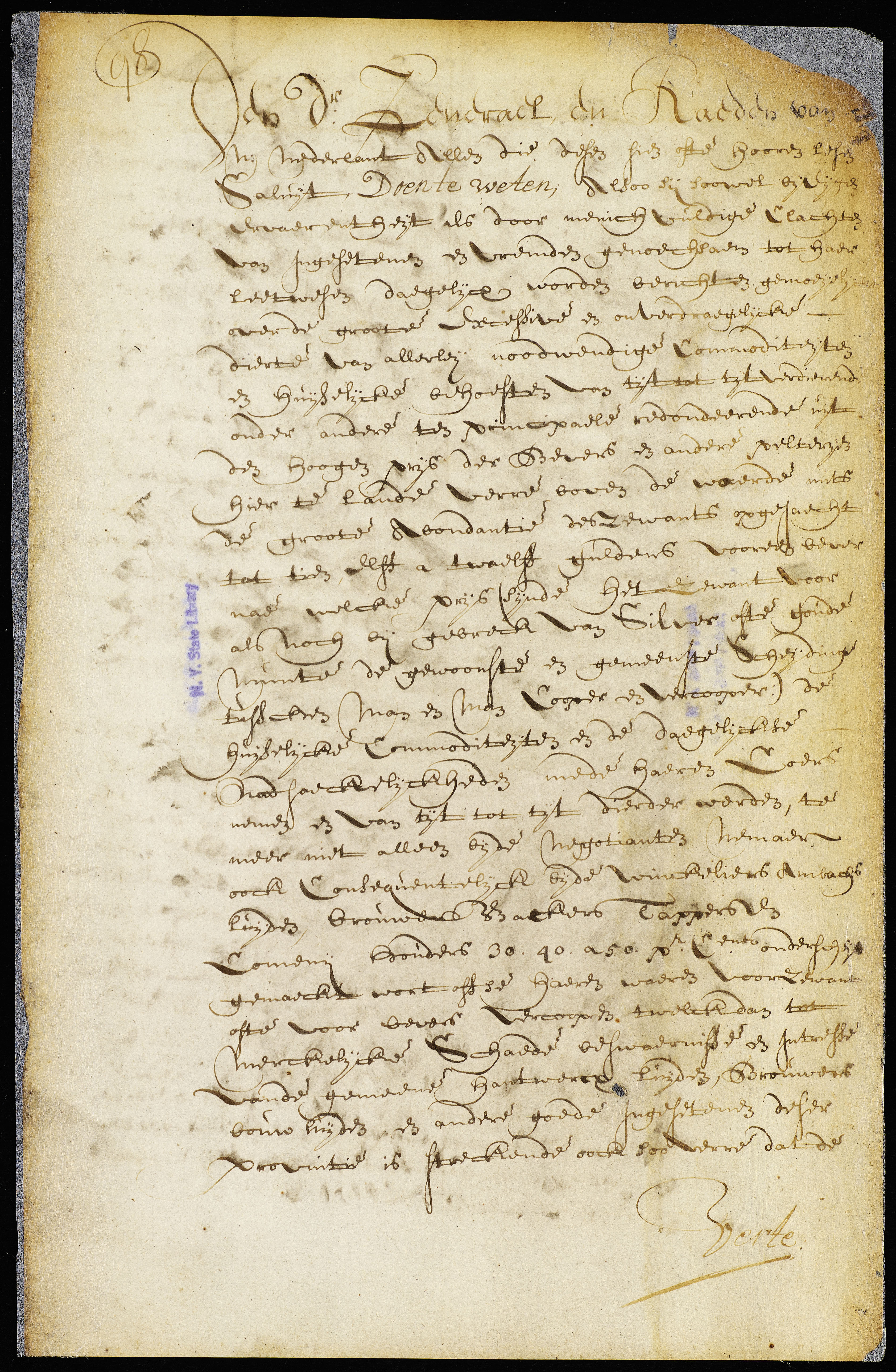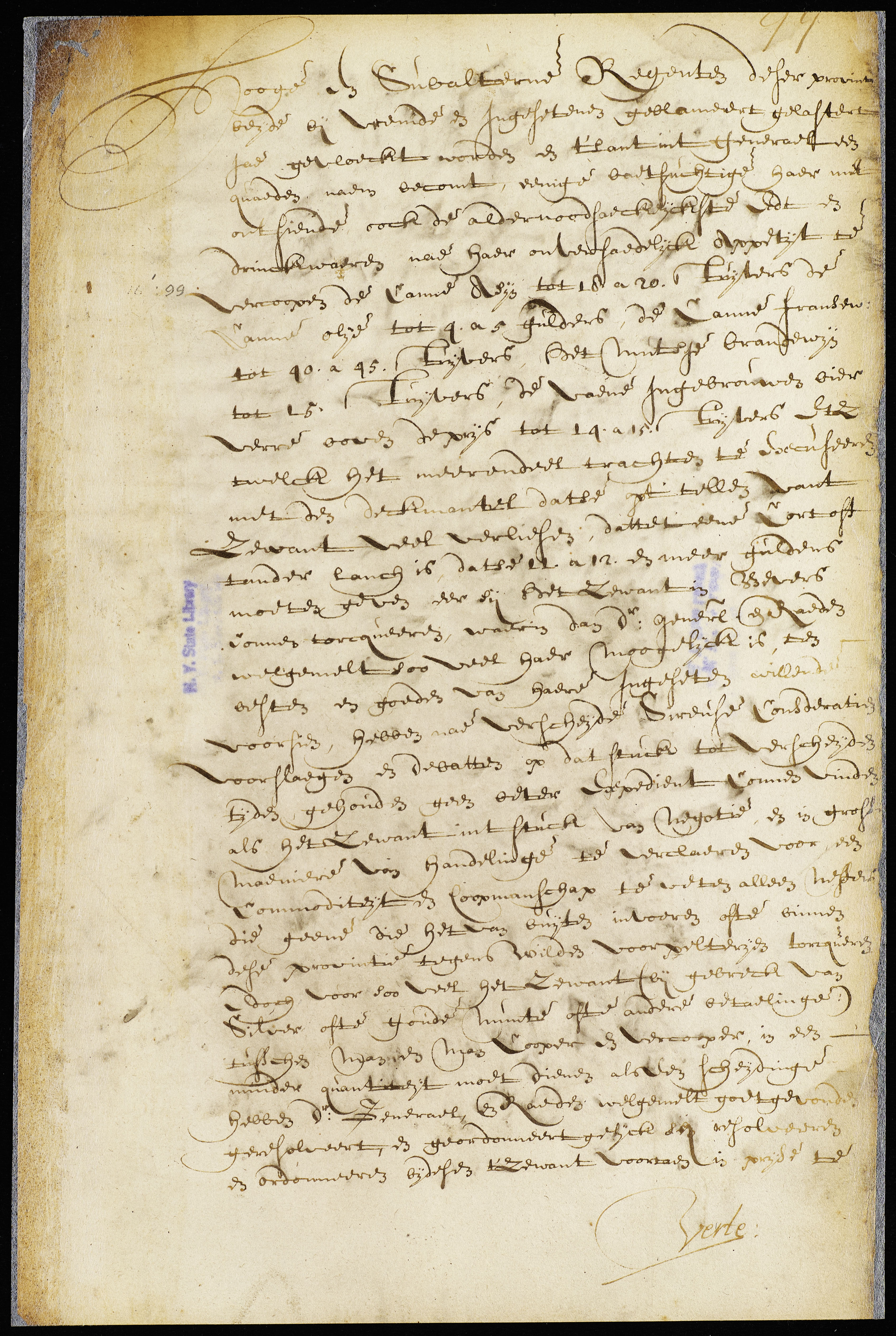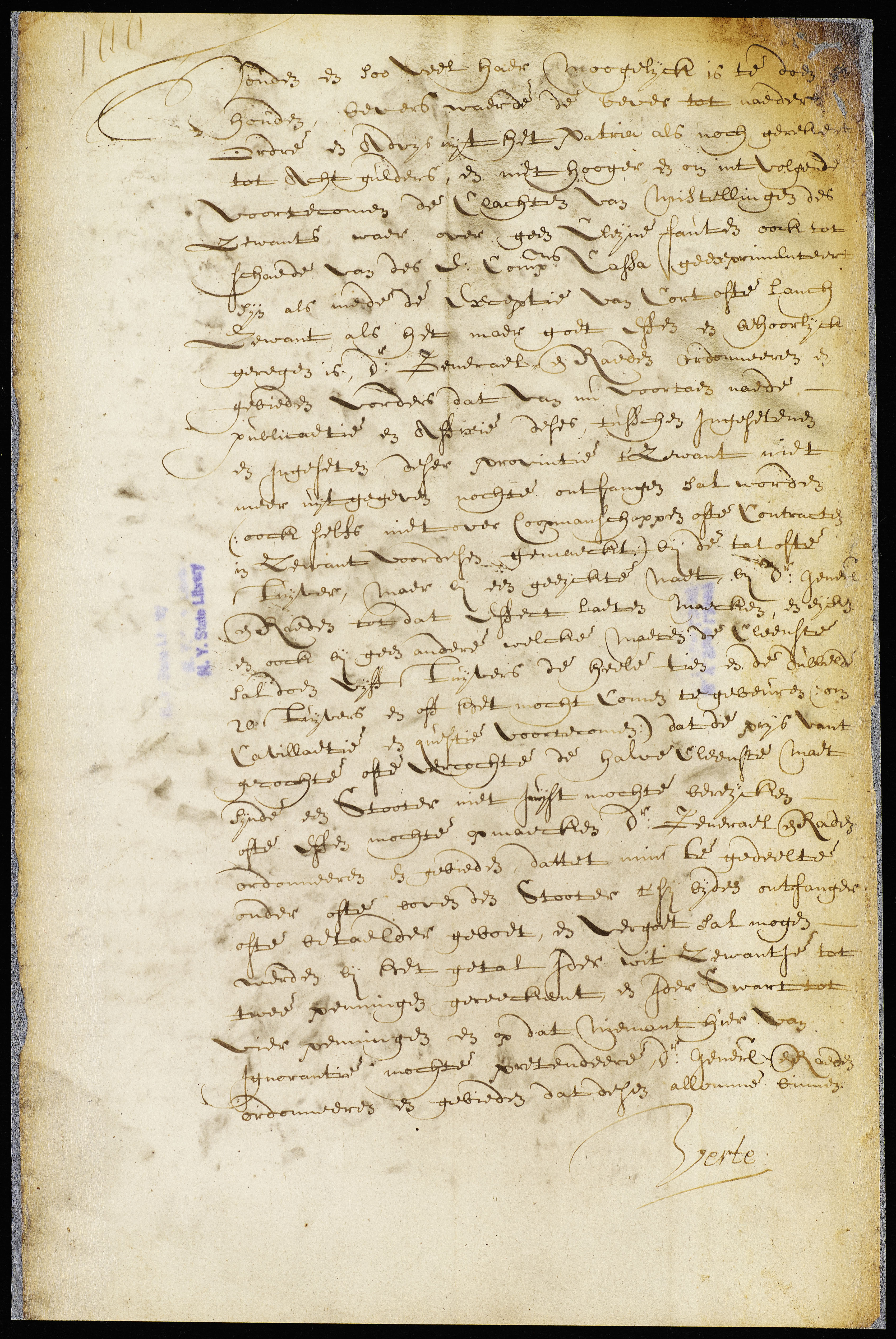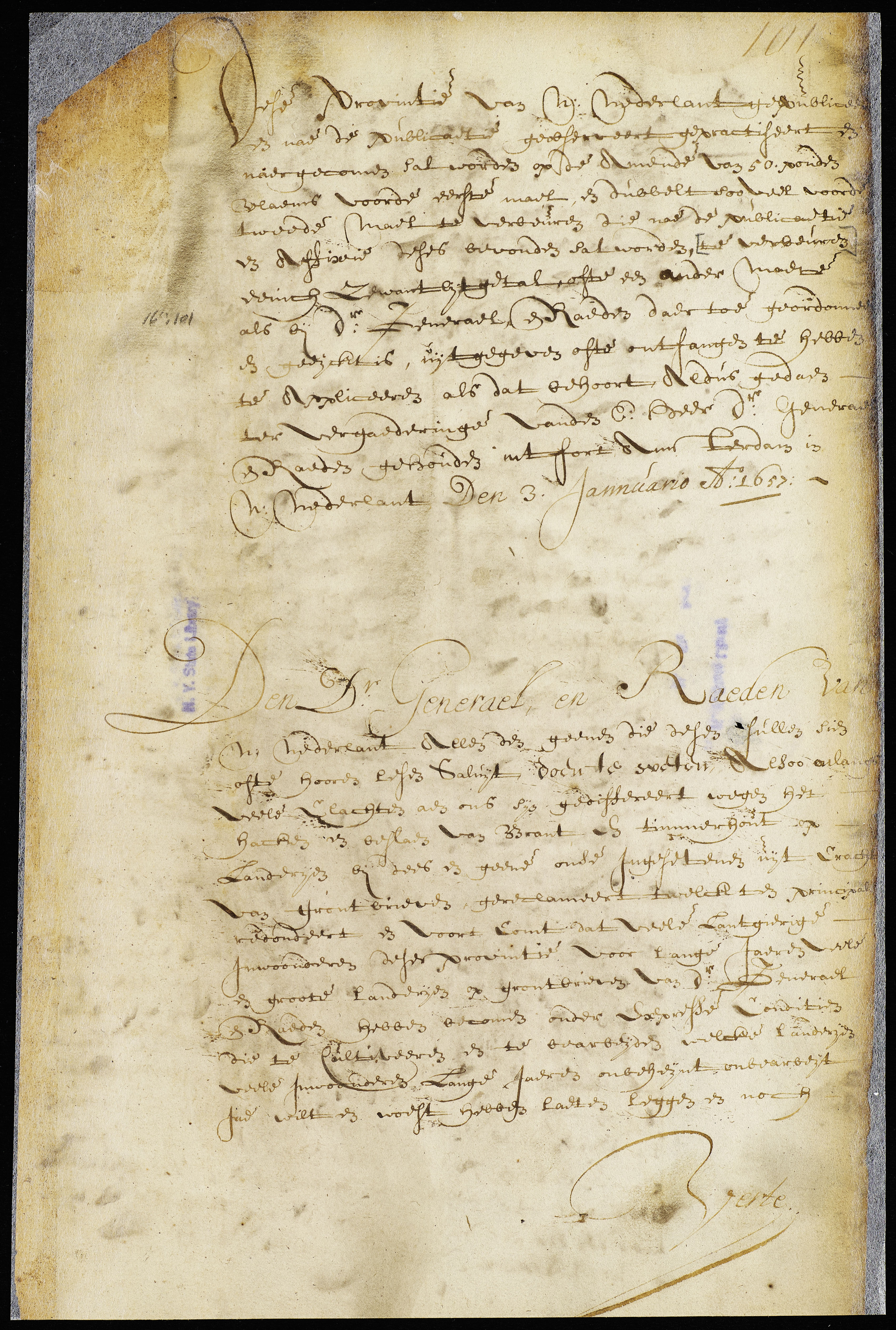The director general and council of New Netherland, to all those who see or hear this read, greetings.
Let it be known that whereas they, to their great regret, are daily informed by their experience, and by the numerous complaints of the inhabitants and strangers importuned, respecting the great, excessive and intolerable dearness of all sorts of necessary commodities and household supplies, the prices of which are enhanced from time to time, principally, among other causes, in consequence of the high price of beaver and other peltries in this country beyond the value, which, by reason of the great abundance of sewant, is advanced, to ten, eleven and twelve guilders for one beaver; and sewant being, for want of silver and gold coin, as yet the most general and common currency between man and man, buyer and seller, domestic articles and daily necessaries are rated according to that price, and become dearer, from time to time; the rather, as not only merchants, but also, consequently, shopkeepers, tradesmen, brewers, bakers, tapsters and grocers make a difference of 30, 40 and 50 percent when they sell their wares for sewant or for beaver. This tends, then, so far to the serious damage, distress and loss of the common mechanics, brewers, farmers and other good inhabitants of this province, that the superior and inferior magistrates of this province are blamed, abused and cursed by strangers and inhabitants, and the country in general receives a bad name, while some greedy people do not hesitate to sell the most necessary eatables and drinkables, according to their insatiable avarice, viz. a can of vinegar at 18 to 20 stivers; a quart of oil at 4 to 5 guilders; a quart of French wine at 40 to 45 stivers; a gill of brandy at 15 stivers, and two quarts of home brewed beer, far above its price, at 14 to 15 stivers etc., which the greater number endeavor to excuse on the ground that they lose a great deal in the counting of the sewant; that is partly short and partly long; that they must give 11 to 12 and more guilders before they can convert the sewant into beaver.
The aforesaid director general and council, wishing, therefore, to provide herein as much as lies in their power, have, for the good and advantage of their inhabitants, after diverse serious considerations, propositions and debates held at various times, not been able to discover any better expedient, than to declare sewant a commodity and merchandise in the matter of commerce and wholesale trade; to wit, only among those who import it from abroad, or trade it in this province with Indians for furs; but inasmuch as, for want of silver and gold coin or other pay, sewant must, in smaller quantities, serve as currency between man and man, buyer and seller the aforesaid director general and council have determined, resolved and ordained, as they do hereby resolve and ordain to rate sewant, and as far as is possible to cause it to be rated at the value of beaver, the beaver being still reckoned, until further order and advice from patria, at eight guilders and no higher.
And in order to prevent in future the complaints of miscounting of the sewant, with regard to which no few mistakes have been experienced, to the loss of the honorable company’s treasury; also, the taking out of short or long sewant, if it be but good, even and well strung, the director general and council further ordain and command, that, from this time forward, after the publication and posting hereof, sewant shall not be paid out or received, between inhabitants and inhabitants of this province, (even for merchandise or for contracts made before this in sewant), by the tally or stiver, but only by a stamped measure, authorized to be made and stamped for that purpose, by the director general and council, the smallest of which measures shall be five stivers; the whole ten, and the double 20 stivers.
And if it should come to pass that the price of the purchased or sold article should not amount to, or equal half the smallest measure or 2’ stivers, the director general and council, in order to prevent objections and disputes, do order and command that the receiver or the payer, shall satisfy or make up the smallest fraction under or over 2' stivers, by the tally; each white sewant piece being reckoned at two pennies, and each black one at four pennies.
And in order that no one may plead ignorance hereof, the director general and council order and command that this shall be published, and, after publication, observed, executed and obeyed, everywhere within this province of New Netherland, under a fine of 50 pounds Flemish for the first time, and double for the second time, to be forfeited by such as shall be found, after the publication and posting hereof, to have paid out or received any sewant by the tally, or any other measure than that ordained and stamped by the director general and council; such fine to be applied as it ought.
Thus done in the session of the director general and council held in Fort Amsterdam in New Netherland, the 3rd of January 1657.[1]





